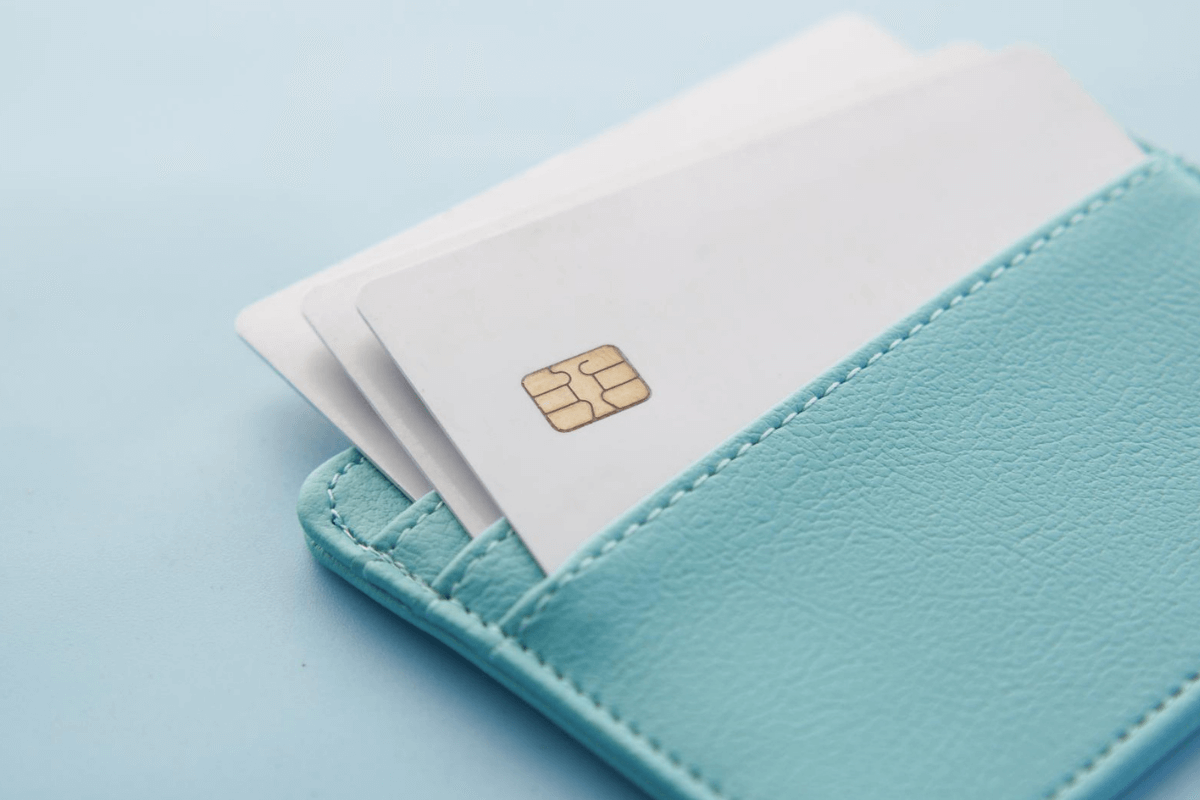Signs You Have Too Many Credit Cards

There’s no definitive answer to how many credit cards a person should have — it’s really a personal choice. On average, however, the typical American had 3.84 credit cards in their name as of the third quarter of 2020, according to the credit reporting agency Experian.
For those who want to pay with plastic, there’s certainly no shortage of options, from credit cards that offer cashback or rewards for specific types of purchases like gas or groceries to business credit cards and store credit cards. And with different types of credit cards providing different benefits, it may seem like more than one credit card is the way to go.
That said, just because a practice is common doesn’t mean it’s right for your financial situation. Here’s how to determine how many credit cards are the right number for you — and how to tell how many credit cards are too many.
Consider Your Personal Finances
Just like many other questions that people encounter when it comes to their finances, the right answer to the question of ‘how many credit cards should I have?’ depends on your personal finances and habits.
For those watching their budgets, having the option to charge purchases may increase your spending. Don’t believe it? There’s ample research dating back two decades that indicates people will spend more if they can pay by credit card. In one iconic study, researchers gave participants the opportunity to buy tickets to a sold-out basketball game. Those who paid by credit card spent as much as double as those who paid by cash.
A person’s finances also play a role in whether they may even successfully obtain multiple credit cards. And once you have them, your financial health can be impacted in other ways.
Also keep in mind how costs can add up if you have multiple credit cards, each with its own annual fee, and how that fits into your budget.
The Pros and Cons of Multiple Credit Cards
There are both advantages and disadvantages to having multiple types of plastic in one’s wallet. Here’s when it could be bad to have too many credit cards — and when it could be good.
How to Know If You Have Too Many Credit Cards
Technically, there is no official rule of thumb as to what constitutes too many credit cards — the answer will come down to the individual. That being said, there are some ways to tell you may have too many cards.
It’s Hard to Keep Your Finances Organized
If you’re finding it hard to stay on top of your finances, you may have too many credit cards. For some people, having multiple credit cards is an organizational burden. They may lose track of their cards or feel overwhelmed by numerous statement due dates and the varying terms about credit cards to remember.
The Cost of Credit Card Fees Exceeds the Benefits
Some premium credit cards carry a fee, and for those with multiple cards, these fees can add up. If the cost of having many credit cards exceeds the benefits, that may be a sign a person is using too many.
The Credit Card Company Tells You So
Credit issuers have rules as to who may open an account — and in some cases, having too many existing credit cards may disqualify an individual. For example, some Chase credit cards are subject to a 5/24 rule, where applicants who have opened five or more personal credit card accounts in the last 24 months, regardless of the issuer, will not be approved.
Different Cards for Different Purchases and Rewards
Although there may be drawbacks to having multiple credit cards in some scenarios or for some individuals, there also can be benefits. For example, there are many types of rewards credit cards, and different individuals may see varying returns based on their spending levels and habits.
Additionally, some cards may have occasional or introductory promotions, such as bonus reward rates or redemptions, that can increase the benefit of using a specific card on a given purchase or at a certain time. There are also products such as secured credit cards, which are backed by cash deposits, allowing those with poor or limited credit history to obtain cards.
Bottom line: there are many factors that go into choosing credit cards. Think carefully about which cards you add to your wallet and how they’ll work together and complement one another.
Credit Cards for Emergencies
Having multiple credit cards isn’t only about optimizing the benefits and rewards. Another good reason for having more than one credit card is that having an extra on hand can help ensure you always have a payment method available.
For example, there are some scenarios in which an individual might try to make a purchase and have it declined. This can be due to hitting one’s credit limit and any lag in processing a payment, or because their account may be flagged for fraud. In such instances, having another card on hand would allow that individual to still pay for any purchases.
One’s credit limit may also be a problem in an emergency. For example, if your car breaks down and you’re almost to your limit, you’d have to pay down your balance or exceed your limit in order to cover the repair fee. While it’s never a good idea to charge more than you can afford, multiple credit cards can ensure credit availability in an emergency.
Tips on Choosing Credit Cards
Even for those with strong familiarity with credit card workings, it’s always a good idea to research a card before applying — whether you have one credit card or many. Here are some helpful tips for choosing a card:
- Consider fees: Because the cost of multiple cards can add up, look for low or no annual fee.
- Look for cards that complement each other: Instead of choosing multiple cards that offer similar benefits and rewards, one can optimize their returns by selecting cards with returns on different categories — and then being selective about which card to use on which purchases.
- Note the APR: For individuals who carry a balance, it’s a good idea to pay attention to the APR of various credit cards.
How Does Number of Credit Cards Impact Credit Score?
One’s credit score is a rating that reflects how “safe” a borrower is to lenders as far as their likelihood of being able to pay back debt. As a lending product, credit card use impacts a person’s score — and their score, in turn, has an impact on their ability to obtain credit in the future.
The number of credit cards a person has can affect their credit score in several ways, including:
- Added hard inquiries: Applying for a new credit card requires a “hard inquiry,” which can lower your score, typically for 12 months.
- Increased or decreased credit utilization: Credit scores also consider one’s credit utilization rate, which is the proportion of credit currently being utilized relative to an individual’s total available revolving credit. Depending on how they are used, multiple credit cards can impact an individual’s credit utilization in different ways:
- If you regularly pay off your balance on time, your credit utilization from this source will remain low, which can have a positive effect on your credit score.
- If you carry a balance on several cards, that can add up and increase credit utilization, adversely affecting your score.
- Payment history: If having multiple cards and multiple monthly statements makes it difficult for a person to stay on top of credit card bills, they run the risk of late payments, which can further ding one’s credit score.
Credit Card Alternatives
If you’d like to diversify your payment options but aren’t sure another credit card is the way to go, you do have other options. Here are some credit card alternatives you may consider:
- Debit card: If you’re struggling to get approved for a credit card or just want more boundaries on your spending, a debit card could be worth considering. Unlike a credit card, where you borrow money to pay for your purchases, with a debit card you use the money already in the attached bank account.
- Personal loan: In an emergency situation, a personal loan is another option to cover your costs. They could offer more competitive interest rates than some credit cards as well. Still, you’ll need a hard inquiry to get approved and you’re still borrowing money you’ll have to pay back, plus interest.
- Payment apps: A payment app like Paypal is another way you can pay when shopping in stores or online as opposed to using a credit card. You can connect Paypal directly to your bank account or to a card. The service also offers the option to send money to other users. Still, it might not be accepted everywhere.
The Takeaway
The number of credit cards it’s reasonable to have is really a personal decision that depends on your specific financial situation and spending habits, as well as what cards you already have or want to add to your wallet.
Whether one credit card is sufficient for your needs, or you see a benefit in having more than one card, it’s a good idea to compare all the options. If you’re thinking about getting a new card to build your credit, Lantern makes comparing a credit card easy.
Disclosures:
The tips provided on this website are of a general nature and do not take into account your specific objectives, financial situation, and needs. You should always consider their appropriateness given your own circumstances.SOLC1021239
This article is originally on Lantern Credit by SoFi.






